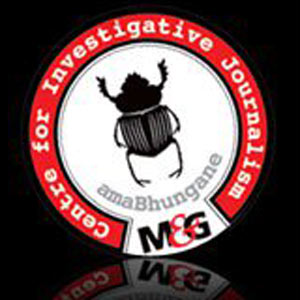Trust in President Ian Khama has waned since Botswana’s elections in 2009.
The opposition Botswana Congress Party (BCP) is to table a private members' Bill in Parliament in February aimed at forcing MPs to declare their assets and liabilities, BCP president Dumelang Saleshando has revealed.
Unlike their South African counterparts, Botswana's parliamentarians are not required publicly to disclose their interests. A Bill requiring disclosure was first tabled 14 years ago by Botswana's former minister of health, Joy Phumaphi. It was never passed, amid claims that the then-vice president, Ian Khama, opposed it.
Saleshando tabled the bill again in 2010. The government refused to process it, with Minister of Presidential Affairs and Public Administration Lesego Motsumi insisting that it would prepare its own legislation.
The public expectation was that Motsumi would table a comprehensive law compelling all people in public office, including the president, cabinet ministers, MPs, members of Ntlo ya Dikgosi (the house of chiefs), municipal councillors, civil servants, members of the defence force, judicial officers, directors of public boards and leaders of public corporations, to declare their and their immediate families' assets.
However, a draft Bill published months later in the Government Gazette merely required MPs to disclose their interests to the president. Khama has never made such information public. Details of MPs' private assets only come to light in rare cases when they are brought to court on corruption charges.
Responding to Khama's state of the nation address in November, Saleshando said that "corruption, mismanagement, non-accountability and unethical governance are widespread and elitist in nature. Bribery, conflict of interest, insider trading and economic crimes such as fiscal and revenue crimes continue unabated."
He said that Botswana should consider enacting new legislation on the disclosure of assets, interests and liabilities, in addition to laws prohibiting insider trading, protecting whistle-blowers, regulating the private funding of political parties and introducing targeted lifestyle audits.
'Corruption is in the mind-set'
In an interview, Saleshando described the declaration of interest legislation as "a basic instrument to combat corruption, even though it won't stop it completely". He said that Khama, whose dealings in the tourism sector have been questioned, should also declare his interests.
Saleshando said that the majority of MPs from both the Botswana Democratic Party (BDP) and the BCP favour the legislation but members of the executive were against it.
BDP chairperson Daniel Kwelagobe, who opposes the legislation, said he sees no need for a law requiring declaration and questioned how it will combat corruption.
"Corruption is in the mind-set of people and exists even where the declaration of assets and liabilities is in place," Kwelagobe said.
BDP MP Tshelang Masisi said he supports the declaration of assets because politicians hold power and influence. His main concern is that it is contrary to Setswana culture for details of one's property to be placed in the public domain for all to see.
Another ruling party MP, Botsalo Ntuane, who has championed the law since it was first tabled, argued that it will free leaders and decision-makers from false accusations.
A survey by the University of Botswana's Afro Barometer team in October found that of 1200 Batswana interviewed, more than half expressed support for the legislation requiring the disclosure of assets and liabilities to an independent body. Sixty-four percent wanted the legislation to cover sitting MPs, heads of parastatals and senior government officials.
The study also indicated that satisfaction with Botswana's democracy is declining. It showed that 70% of Batswana were satisfied, compared with 83% in 2008 when Festus Mogae was president.
The study revealed that trust in Khama as head of government had fallen from close to 80% to 69%. It highlighted a lack of trust in Parliament as a law-making body and critical democratic institution.
* Got a tip-off for us about this story? Email [email protected]

The M&G Centre for Investigative Journalism (amaBhungane) produced this story. All views are ours. See www.amabhungane.co.za for our stories, activities and funding sources.